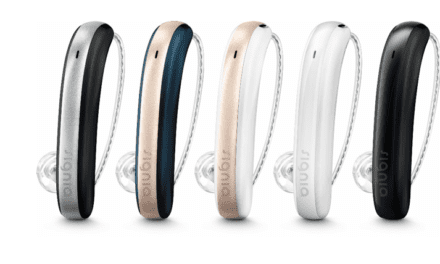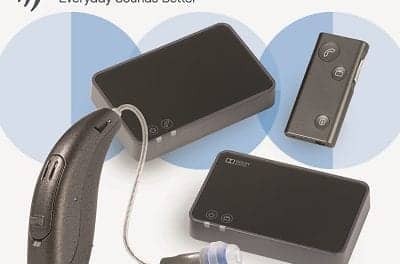For 75 years, May has been designated as a time to raise public understanding about hearing, and voice, speech, and language disorders, and recognize speech and hearing professionals for the important work they do. Once again, all Americans are invited to join them in celebrating Better Hearing and Speech Month.
This year’s Better Hearing and Speech Month celebration draws attention to the almost 20 million Americans with untreated hearing loss and applauds the 41 states that are now conducting hearing screenings for newborns and urges us all to have our hearing checked periodically and protect our ears against damaging noise.
In the past decade huge improvements have been made due to infant hearing screening programs. This catches problems early and allows for early intervention. With intervention such as a cochlear implant in the first six months of life, babies and young children with hearing impairment can often learn to communicate almost normally.
Modern hearing aids and assistive listening devices make it possible for people with hearing problems to participate in group conversations, watch TV without turning the volume up excessively high, understand at worship services, successfully use the phone, and hear the sounds they’ve been missing. More than 95% of people with hearing problems can successfully wear hearing aids, according to the American Academy of Audiology.
Healthy Hearing Facts:
- Hearing impairment currently affects 10% of the population and is the 3rd most common chronic health condition in the U.S.
- One out of every three adults over 65 has a hearing loss
- Hearing loss contributes to social isolation, dementia and depression
- Every adult should have a base-line hearing test by the age of 30
- Adults over the age of 40 should have an annual hearing test
- Individuals with hearing and balance problems should seek care from a Doctor of Audiology (Au.D.)
- Hearing aids are the beginning of successful treatment for hearing loss. Training in their use is needed and follow-up is essential, as retraining is often needed to help the brain interpret sounds.
- Hearing healthcare is constantly improving due to new and improved technology and specialized care provided by Doctors of Audiology.
Sources: National Institute on Deafness and Other Communication Disorders; Audiology Foundation of America




